Find out which magnesium supplement is best for muscle relaxation. Explore the top 5 magnesium types and learn how they can help alleviate muscle tension
Are you tired of feeling tense and wound up after a long day? Do your muscles ache and refuse to loosen up no matter how much you stretch? If so, you’re not alone. Millions of people struggle with muscle tension and soreness, but there’s a natural solution that might just change your life: magnesium. In this comprehensive guide, we’ll explore the best magnesium supplements for muscle relaxation, helping you find the perfect match for your body’s needs. Get ready to say goodbye to tight muscles and hello to a more relaxed, comfortable you!
Why you need the best magnesium for muscle relaxation.
Let’s take a moment to understand why this mineral is so crucial for muscle relaxation. Magnesium plays a vital role in over 300 biochemical reactions in the body, including muscle and nerve function. It helps regulate muscle contractions and relaxation by:
- Blocking calcium uptake, which can cause muscles to contract
- Increasing the production of ATP, the energy currency of cells
- Reducing inflammation and oxidative stress
When your body lacks sufficient magnesium, you may experience muscle cramps, tightness, and spasms. By ensuring you have enough magnesium in your system, you can promote better muscle function and overall relaxation.
The 7 Best Magnesium for Muscle Relaxation
Now that we understand the importance of magnesium, let’s explore the top seven supplements that can help you achieve optimal muscle relaxation:
KEY TAKEAWAYS:
Top Choices Revealed: Discover the best magnesium supplements specifically for muscle relaxation.
Relaxation Guaranteed: Learn which magnesium type can help you unwind and alleviate muscle tension effectively.
Comprehensive Guide: From Magnesium Glycinate to Citrate, find the right match for your needs.
1. Magnesium Glycinate: The All-Rounder
Magnesium glycinate is often considered the gold standard for muscle relaxation. It combines magnesium with glycine, an amino acid that supports relaxation and sleep. This form is highly bioavailable, meaning your body can absorb and utilize it efficiently. It’s also gentle on the stomach, making it an excellent choice for those with sensitive digestive systems.
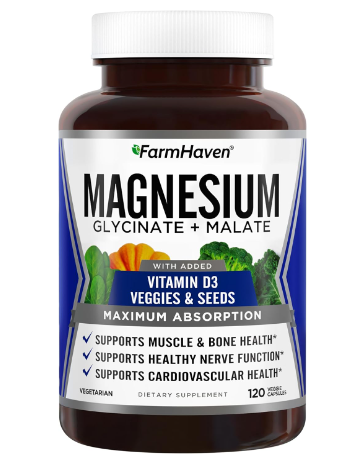
Experience gentle yet effective muscle relaxation. Try Magnesium Glycinate today and feel the difference in your muscle recovery and overall well-being!
2. Magnesium Citrate: The Quick-Acting Solution
If you’re looking for fast relief, magnesium citrate might be your best bet. This form is easily absorbed and can have a mild laxative effect, which can be beneficial for those dealing with constipation-related muscle tension. However, start with a lower dose to avoid any potential digestive discomfort.
The health benefits of magnesium citrate:
a) Digestion Regulation
b)Muscle and Nerve Support
c) Bone Strength
d)Heart Health

Get quick relief from muscle tension with Magnesium Citrate. Start with a lower dose and see fast results for both relaxation and digestive support!
3. Magnesium Chloride: The Topical Wonder
For targeted muscle relaxation, magnesium chloride in the form of topical oils or sprays can be incredibly effective. When applied directly to the skin, it can be absorbed transdermally, providing localized relief to tense muscles. This method is particularly useful for athletes or those with specific problem areas.
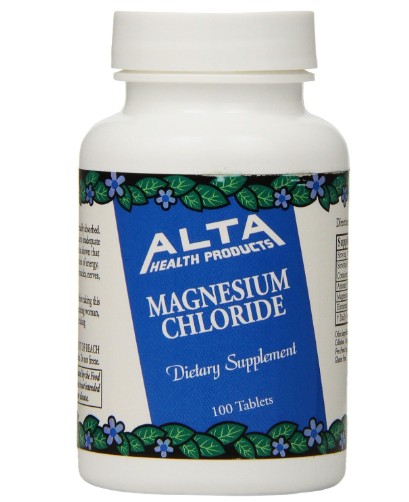
Target muscle tension where you need it most with Magnesium Chloride. Apply topically for instant, localized relief!
4. Magnesium Malate: The Energy Booster
Magnesium malate combines magnesium with malic acid, which is involved in energy production. This form is excellent for those who experience muscle fatigue along with tension, as it can help improve energy levels while promoting relaxation.
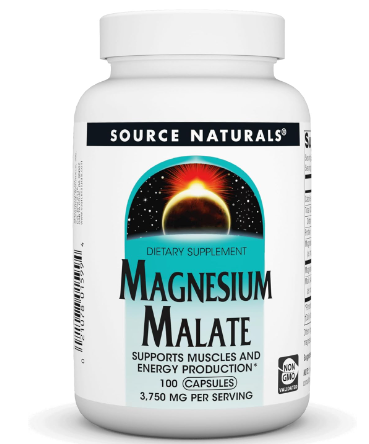
Boost your energy while soothing muscle tension. Choose Magnesium Malate for a revitalizing solution to muscle fatigue!
5. Magnesium Taurate: The Heart-Healthy Option
If you’re concerned about cardiovascular health alongside muscle relaxation, magnesium taurate might be the perfect choice. This form combines magnesium with taurine, an amino acid that supports heart health and can have a calming effect on the nervous system.
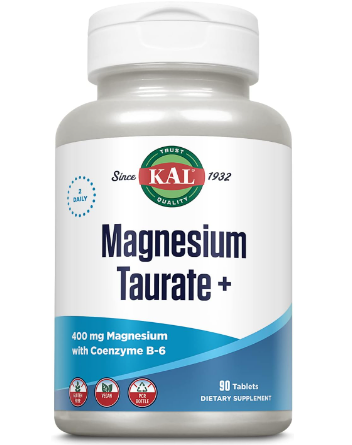
Support your heart while relaxing your muscles. Opt for Magnesium Taurate for a calming effect on both your muscles and cardiovascular system!
6. Magnesium Threonate: The Brain Booster
While primarily known for its cognitive benefits, magnesium threonate can also contribute to overall muscle relaxation by reducing stress and promoting better sleep. This form is unique in its ability to cross the blood-brain barrier, potentially offering additional relaxation benefits through improved brain function.
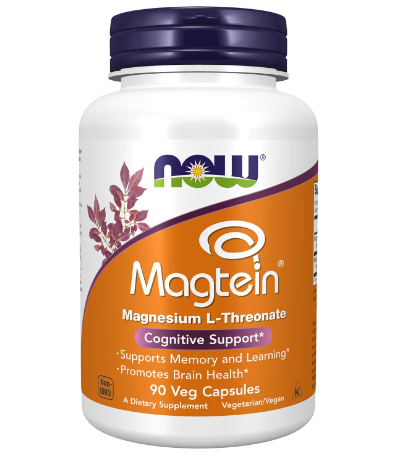
Enhance your cognitive function and muscle relaxation simultaneously. Try Magnesium Threonate for a brain-boosting, stress-reducing experience!
7. Magnesium Orotate: The Endurance Enhancer
For athletes and active individuals, magnesium orotate can be a game-changer. This form is well-absorbed and may help improve exercise performance and recovery, leading to reduced muscle tension and better overall relaxation.
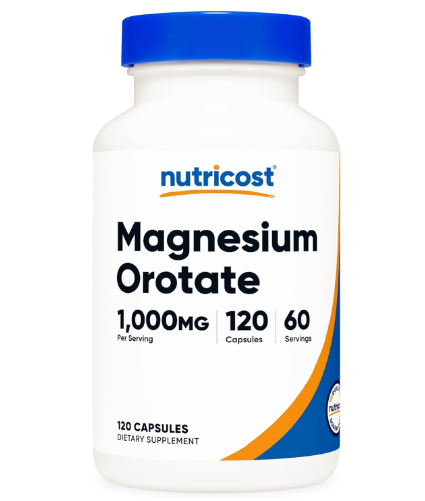
Enhance your endurance and recover faster with Magnesium Orotate. Ideal for active individuals seeking peak performance!
Frequently Asked Questions About Magnesium for Muscle Relaxation
Q: How much magnesium should I take for muscle relaxation? A: The recommended daily intake of magnesium varies based on age and gender, but generally ranges from 310-420mg for adults. However, for muscle relaxation purposes, some people may benefit from higher doses. Always consult with a healthcare professional before significantly increasing your magnesium intake.
Q: Can I get enough magnesium from my diet alone? A: While it’s possible to obtain magnesium from foods like leafy greens, nuts, and whole grains, many people don’t get enough through diet alone. Factors like soil depletion and processed foods have made it more challenging to meet magnesium needs through diet, which is why supplements can be beneficial.
Q: How long does it take to see results from magnesium supplementation? A: Some people report feeling more relaxed within hours of taking magnesium, especially when using forms like magnesium citrate. However, for long-term benefits, it may take several weeks of consistent supplementation to notice significant improvements in muscle relaxation.
Q: Are there any side effects of taking magnesium supplements? A: While magnesium is generally safe, taking too much can lead to digestive issues like diarrhea or nausea. Start with a lower dose and gradually increase as needed. If you have kidney problems or are taking certain medications, consult your doctor before starting any magnesium supplementation.
Q: Can I combine different types of magnesium supplements? A: Yes, you can combine different forms of magnesium to target various aspects of muscle relaxation and overall health. However, be mindful of your total magnesium intake and consult with a healthcare provider to ensure you’re not exceeding safe levels.
Tips for Maximizing the Benefits of Magnesium for Muscle Relaxation
To get the most out of your magnesium supplementation for muscle relaxation, consider these tips:
- Pair magnesium with other relaxation-promoting nutrients like vitamin B6 and calcium
- Take magnesium in the evening to support better sleep and overnight muscle recovery
- Stay hydrated, as proper hydration is crucial for muscle function and relaxation
- Incorporate magnesium-rich foods into your diet alongside supplementation
- Practice stress-reduction techniques like meditation or deep breathing to enhance magnesium’s relaxation effects
Beyond Supplements: Lifestyle Factors for Optimal Muscle Relaxation
While magnesium supplements can be incredibly effective, they work best as part of a holistic approach to muscle relaxation. Consider incorporating these lifestyle factors:
- Regular exercise, including stretching and yoga
- Proper sleep hygiene for better recovery
- Stress management techniques
- Balanced nutrition
- Adequate hydration
- Regular massage or self-myofascial release techniques
The Science Behind Magnesium and Muscle Relaxation
Let’s delve deeper into the scientific evidence supporting magnesium’s role in muscle relaxation:
A 2017 study published in the journal Nutrients found that magnesium supplementation significantly reduced muscle cramps in individuals with chronic kidney disease. Another study in the Journal of Research in Medical Sciences showed that magnesium supplementation improved symptoms of fibromyalgia, including muscle pain and tenderness.
Moreover, research published in the American Journal of Clinical Nutrition demonstrated that higher magnesium intake was associated with greater muscle strength and power in older adults. This suggests that magnesium not only helps relax muscles but also contributes to overall muscle health and function.
Choosing the Right Magnesium Supplement for You
With so many options available, selecting the best magnesium supplement for your needs can feel overwhelming. Here are some factors to consider:
- Bioavailability: Opt for forms that are easily absorbed by the body
- Specific needs: Consider your primary goal (e.g., sleep improvement, energy boost)
- Digestive sensitivity: Choose gentler forms if you have a sensitive stomach
- Lifestyle: Consider whether you prefer oral supplements or topical applications
- Budget: Compare prices and serving sizes to find the best value
Remember, what works best for one person may not be ideal for another. Don’t be afraid to experiment with different forms of magnesium to find your perfect match.
Conclusion:
Incorporating the right magnesium supplement into your daily routine can be a game-changer for muscle relaxation and overall well-being. From the versatile magnesium glycinate to the fast-acting magnesium citrate, there’s a form of this essential mineral to suit every need and preference. By understanding the benefits of different magnesium supplements and how they work in your body, you can make an informed decision to support your muscle health and relaxation goals.
Remember, while magnesium supplementation can be incredibly beneficial, it’s just one piece of the puzzle. Combine it with a balanced diet, regular exercise, stress management techniques, and proper sleep for the best results. Listen to your body, start with lower doses, and consult with a healthcare professional if you have any concerns or pre-existing conditions.
Now that you’re armed with knowledge about the best magnesium supplements for muscle relaxation, it’s time to take action. Choose the form that resonates most with your needs, and get ready to experience the transformative power of magnesium. Your muscles (and your whole body) will thank you for it!




